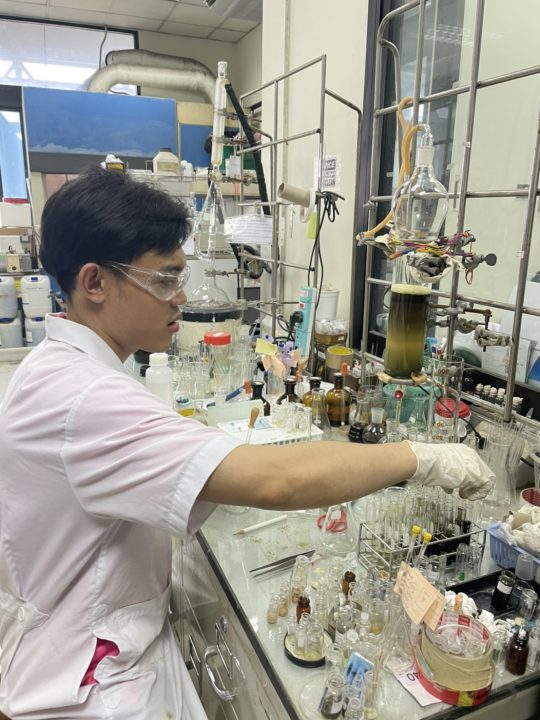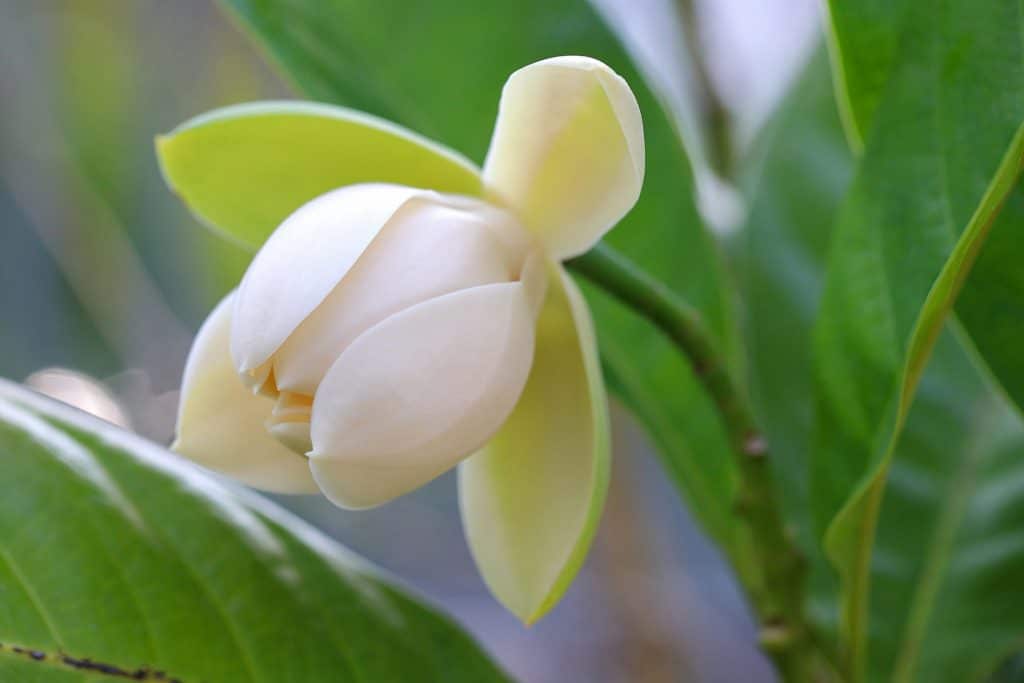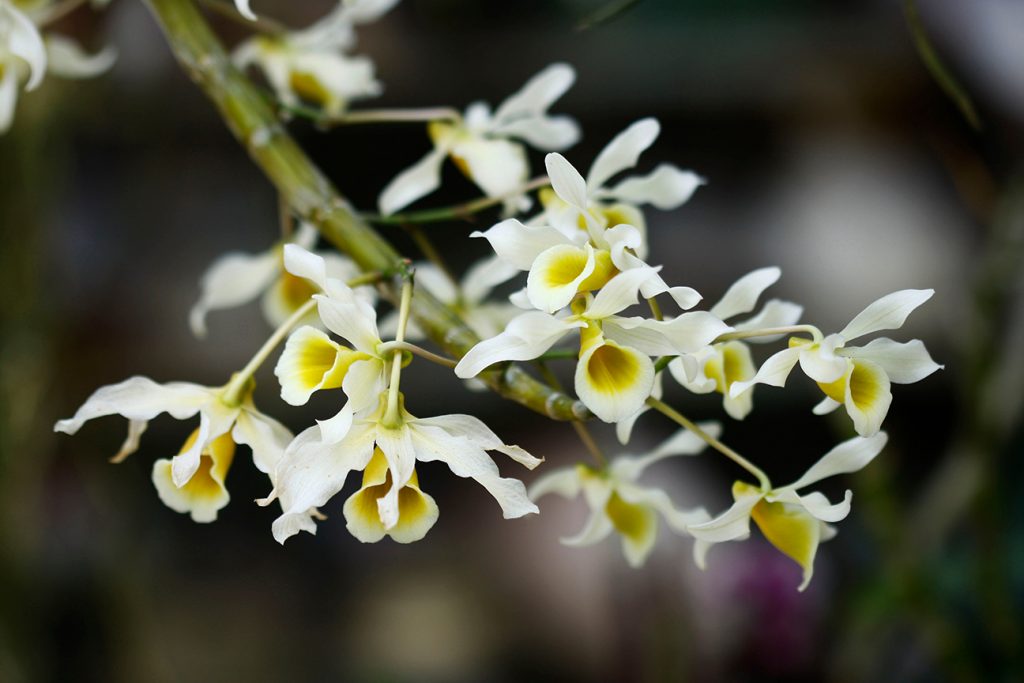News — Chula Faculty of Science has found new antioxidant and anti-inflammatory substances from Dendrobium signatum and Egg Magnolia extracts and aims to expand on its economic potential as a natural beauty product.
The latest research from Chula’s Faculty of Science may change the future of the beauty industry with the discovery of “phenolic” substances that have antioxidant properties from Dendrobium signatum and Egg Magnolia flowers to be used for high-quality cosmetics production.
“Both plant species contain complex phenolic compounds which can exceptionally bind with free radicals, both inside and outside of the cell, better than what’s widely used in the beauty products on the market. The pure substances extracts are not toxic when tested with normal human cells,” said Prachak Khumploy, a master’s degree student, part of the research team from the Department of Chemistry, about the properties of the extracts from native plants of Thailand.

Prachak Khumploy
Master’s degree student, part of the research team from the Department of Chemistry
“Today, an abundance of antioxidant cosmetics and health products can be found in the market, but natural extracts that have been well researched and are reliable will help build confidence for consumers in terms of safety with minimal harm from side effects,” Prachak added about the background of the research, under the leadership of Professor Dr. Khanitha Pudhom.

Professor Dr. Khanitha Pudhom
Prachak explained that phenolic substances have antioxidant and anti-inflammatory properties at the cellular level. The Dendrobium signatum contains important substances in the bibenzene, flavonoids, terpenoids groups; while the egg magnolia contains alkaloids, flavonoids, lignan, neolignan, and terpenoids. Moreover, these substances may inhibit melanin production and will be further tested in the future.
Apart from Phenol, the research team also found a new extract in the sesquiterpene lactones (SLs) group which has anti-inflammatory effects, with little to almost no cytotoxicity. They can be used as a booster in combination with other substances.

“We have not officially named this extract, and must wait until the research is published. So far, the publication has been delayed because of the COVID-19 outbreaks. After the publication, we will do further testing. The well-performing ingredients will be made into cream products and tested for absorption, etc.”
Prachak and Prof. Dr. Khanitha said, “in the future, the research outcome may be developed into products under the umbrella of the Faculty of Science, and as an active ingredient for industrial companies, depending on the development opportunities and interests.”


“Thai researchers are discovering new substances from the herbs all the time. However, we must not use only one type of plant, but need to research and experiment with other substances for synergistic formulas “Prof. Dr. Khanitha recommended this while mentioning the potential of Thai medicinal plants for chemical extraction to further enhance value as an economic crop in the health and beauty industry.
“Thailand has the advantage of the diversity of medicinal plants. We are also well-equipped with technology and talent to be a hub of medicinal plants in the region, and expand the herbs to become the country’s economic crop, ” she concluded.

